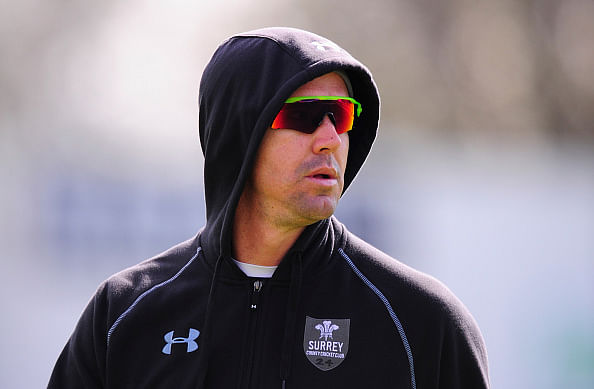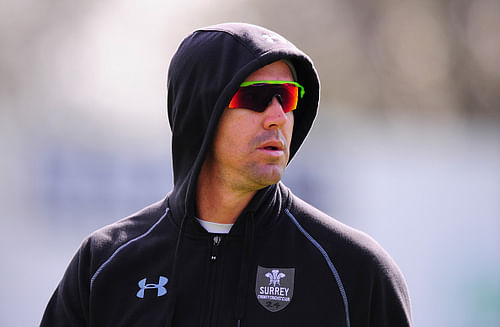
Kevin Pietersen and England - It could have only ended this way

Former Middlesex top order batsman Ed Smith’s international career never quite took off, and so he’s not the most familiar figure in cricketing circles. But the sport these days offers several other career avenues and Smith, unlike many who have tried, has turned out to be one of the better cricket writers going around.
In one of his recently published editorials for ESPNCricinfo, Smith debunks a few notions about an ideal leadership candidate. The article argues that an ideal leader in cricket is often acknowledged and praised only in retrospect, and that there are no templates set for a perfect captain. Most qualities desired in a captain have only found place in common perception due to a repetitive barrage of a popular rhetoric.
The argument Smith makes can further be extended to the commonly known definition of an ideal team-man. In any team sport, it’s vital to promote a culture of putting the team’s collective interest above one’s own. But the standard narrative often assumes that these values are only upheld by those who espouse conformism. The rebels are perceived to be a malice the team would be served better without. And every single failure on their part is instantaneously attributed to their conduct that doesn’t fit the template.
Nothing could be further from the truth though. Not only is it unfair to doubt an individual’s commitment and focus to the collective cause simply because their personality borders on eccentricity, but also foolhardy. The idea of an unorthodox player being a good team-man is nowhere near as inconceivable as the proponents of staunch conservatism would have you believe.
It’s entirely plausible for a cricketer to lead the life of his choice, play the game with flair and aplomb, and yet never lose sight of the larger objective. Few things have damaged the human perspective more than the obsession to view things in black and white.
Kevin Pietersen is presently at the receiving end of this obsession – of an organization called ECB who could be labeled the modern day flag-bearers of conservative thinking. But that’s not something Pietersen has learnt overnight.
Years back when he decided to migrate away from his country of birth and play first-class cricket for his adopted home, he surely knew what he was signing up for. Or did he? His flamboyance had always been frowned upon and the traditionalists, owing in large part to their intransigence, had never quite been able to view him as one of their own.
But Pietersen scored runs. And scored them aplenty. He brought in an element of flair and extravagance that was unknown to an entire generation of English cricket fans who were a bit too young to have ever followed Ian Botham.
Pietersen’s approach was different. His talent, preternatural. The very mention of a certain Shane Warne used to send chills down the Englishmen’s spine, but Pietersen had never learnt that fear. He hammered Warne all around the park when England were trying to save a Test match at The Oval in 2005.
Sure, his approach had ruffled a few feathers in the purists’ circles, but the crowds were absolutely loving the idea of one of their own not only standing tall against but even taking down the mighty Aussies. Pietersen was different. Brave, unfazed, unflustered. And right at the outset, he had made it amply clear that he was not one to conform to the MCC’s value sets.
********
When he faced the axe from a move supposedly engineered by Paul Downton, the former director of cricket at the ECB, the media was aghast. But while the decision to get rid of Pietersen seemed incomprehensible to most, the legendary Martin Crowe felt England were a year too late in doing so. In his column for ESPNCricinfo, the former New Zealand captain argued that Pietersen should never have been brought back to the fold after the text-gate of 2012.
For the uninitiated, Pietersen’s actions during text-gate were not easily forgivable. The fallout with then captain Andrew Strauss was seemingly irreparable, and it was pretty clear that England had to make a choice. England chose Pietersen. Strauss announced his retirement in haste.
The decision to find a way back for Pietersen despite his actions paid rich dividends in the short term, as he played an invaluable part in England’s series win in India – their first there in over 25 years – and they still remain the only visiting team to have conquered the Indians in their own backyard since the all-conquering Australian side did in 2004.
But things were always going to stay volatile with Pietersen back into the mix, and it was only a matter of time before someone broke the silence. Internal differences and grievances stay buried for as long as the team continues to win. But the moment the results start going against you, it’s hard to stop them from surfacing.
England’s shenanigans Down Under in the winter of 2013-14 were the last straw in the camel’s back, and the differences began to show. Although Downton being the whistleblower was largely seen by the media as the man who led Pietersen’s sacking, surely there was a sizable majority in the dressing room in agreement with his assessment.
Matt Prior – the vice-captain of the side and an influential voice in the set-up – was strongly in favour of the batsman’s ouster; the two even today do not exchange Christmas cards. For what it’s worth, neither Andy Flower nor Alastair Cook showed any resistance against Downton’s idea, and hence the call was a well thought and highly deliberated one with a stamp of consensus from those who mattered. And there was very little scope for reconsideration and reconciliation.
Pietersen, on his end of the bargain, may well have given up hopes of featuring for the national team ever again, but certainly did not give up on the PR battle. In his defence, there was an entire army of influencers on social media – ranging from credible cricketing voices in the UK such as Geoffrey Boycott and Michael Vaughan to the incredibly impassioned Piers Morgan. Even former England football star Gary Lineker has been one of the harshest critics of the ECB for the manner in which they’ve allowed this saga to unfold.
Barring an odd tweet here and there, the internet at large has been extremely kind to Pietersen. Even the Sky broadcasting team, often facing the public wrath for their unflinching loyalty to the establishment, has been vocal in expressing that things could have been handled better. But while the media were working overtime filling up their column inches writing Pietersen apologies, the man himself was doing everything in his power to ensure the predicament prevailed.

His Twitter remarks on some of his teammates and coaching staff were not only in poor taste but also breached the dressing room confidence. In a number of TV interviews during the last one year, Pietersen in no uncertain words expressed scathing criticism of the England team culture and the attitude of the core group of senior players.
The ill-timed release of his autobiography was the final nail in the coffin. If Pietersen seriously harboured hopes of sharing a dressing room again with the likes of Cook, James Anderson and Stuart Broad after having said the things he did, he was either fooling himself or was terribly advised by his PR team. And as the recent media reports have confirmed, Cook and several others in the backroom staff had threatened to quit if the idea of reintegrating the ousted batsman into the England setup was even remotely entertained.
Now you may argue that Graeme Swann too hadn’t been exactly kind towards his fellow players in his autobiography, which he released while he was still pretty much part of the team. But let’s be honest here. Swann is never going to attract the same media attention as Pietersen, and he wasn’t fighting a battle against the administration at the time of his book release. It was, in fact, a largely unnoticed event.
Pietersen, on the other hand, was a man cornered by the administration’s big shots, and should have ideally been advised to wait and regain a position of strength before hurling his attacks. To be fair to him, everything he’s said may be veracious and score full marks on the authenticity scale. But sadly, all of it promises to win him little more than media sensation. If that’s what he was after, there’s no point grieving anyway.
********
The final aspect of this entire episode is the choice of words by Strauss – lack of trust. It’s fair to say that trust and harmony do not win you games of cricket. Runs and wickets do. And it’s entirely possible for adult men to form a cohesive unit working towards a common goal and yet not share the most amicable of relations in their personal space.
Take Shane Warne for instance. The leg-spin wizard has never been the biggest admirer of Steve Waugh and John Buchanan. Sourav Ganguly and Rahul Dravid come across as the best of buddies engaging in friendly banter in the commentary box these days, but the duo have had their share of differences.
The reverent memoirs that the biographers write often tend to overlook the hard details that might disrupt the otherwise fairytale narrative. But an honest, probably off the record account of things would confirm that nearly every other successful team has had characters not unanimously likable, but around whom people found a way. That’s how adults deal with issues.
But then, despite the differences, there’s some basic code that one is expected to observe. The dressing room tensions are not to be made a matter of public discussion. Pietersen did violate these lines and that could only have perpetuated the distrust. The uncanny awkwardness that he’d share for the rest of his life with Cook and others makes it nearly impossible for either party to put things behind and reconcile.
Pietersen may have been forthright in asserting how much it means to him to play for England again, but his case would have been far stronger today had he gone back to playing first-class cricket straightaway after what he felt was an unfair axing. Instead, he chose the life of a journeyman for a year, travelling around the world playing franchise T20 cricket.
It was only after some vague hints thrown by the ECB chairman-elect Colin Graves that Pietersen recognized the value of playing some serious cricket back home. Score runs he did this season, but it’s misleading to say that that’s all he’s been doing since the sacking.
Explaining his side of the story for the Telegraph, Pietersen writes that Graves had made the possibility of a return amply clear, subject to proving his form in county cricket. But it feels ludicrous to assume that on his first day in the office, Strauss took a call this big without seeking any consent from Graves. It also leads to more questions regarding the hierarchy and power structure in the working model of the ECB.
All said and done, in a cricket culture that is so stuck in time and tradition, there’s only one way things could have ended for an unapologetic iconoclast. Never mind the unmistakable splendour of your persona or the beauty of your imperfections, KP. There’s only one way this could possibly have played out.